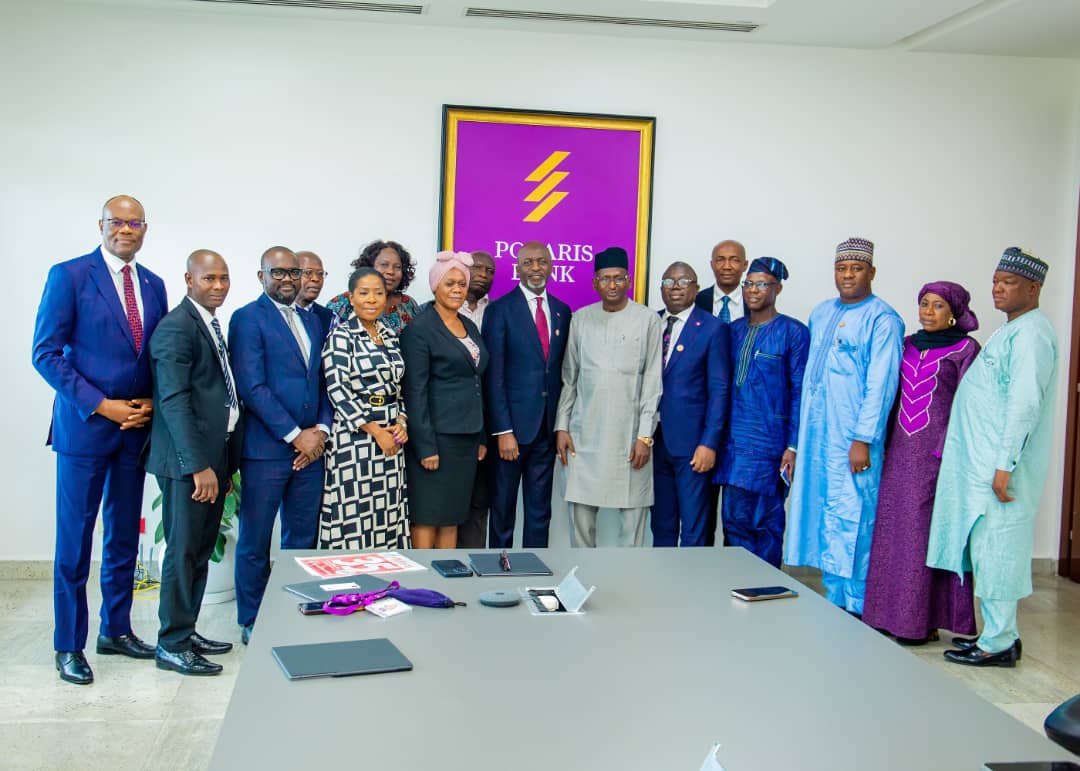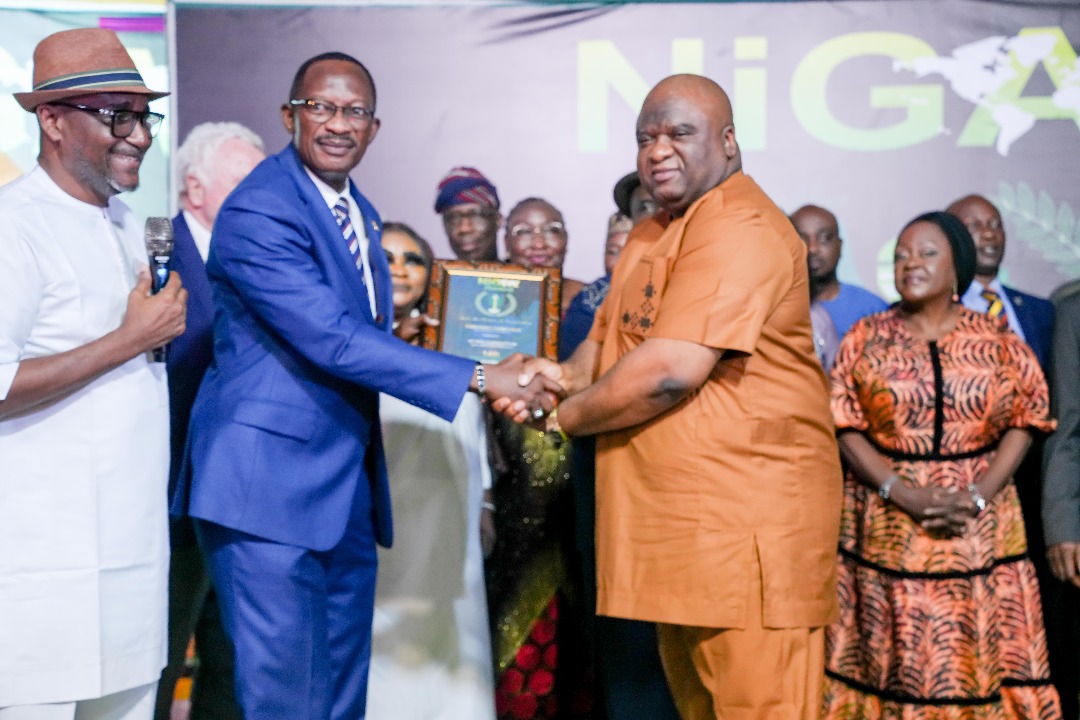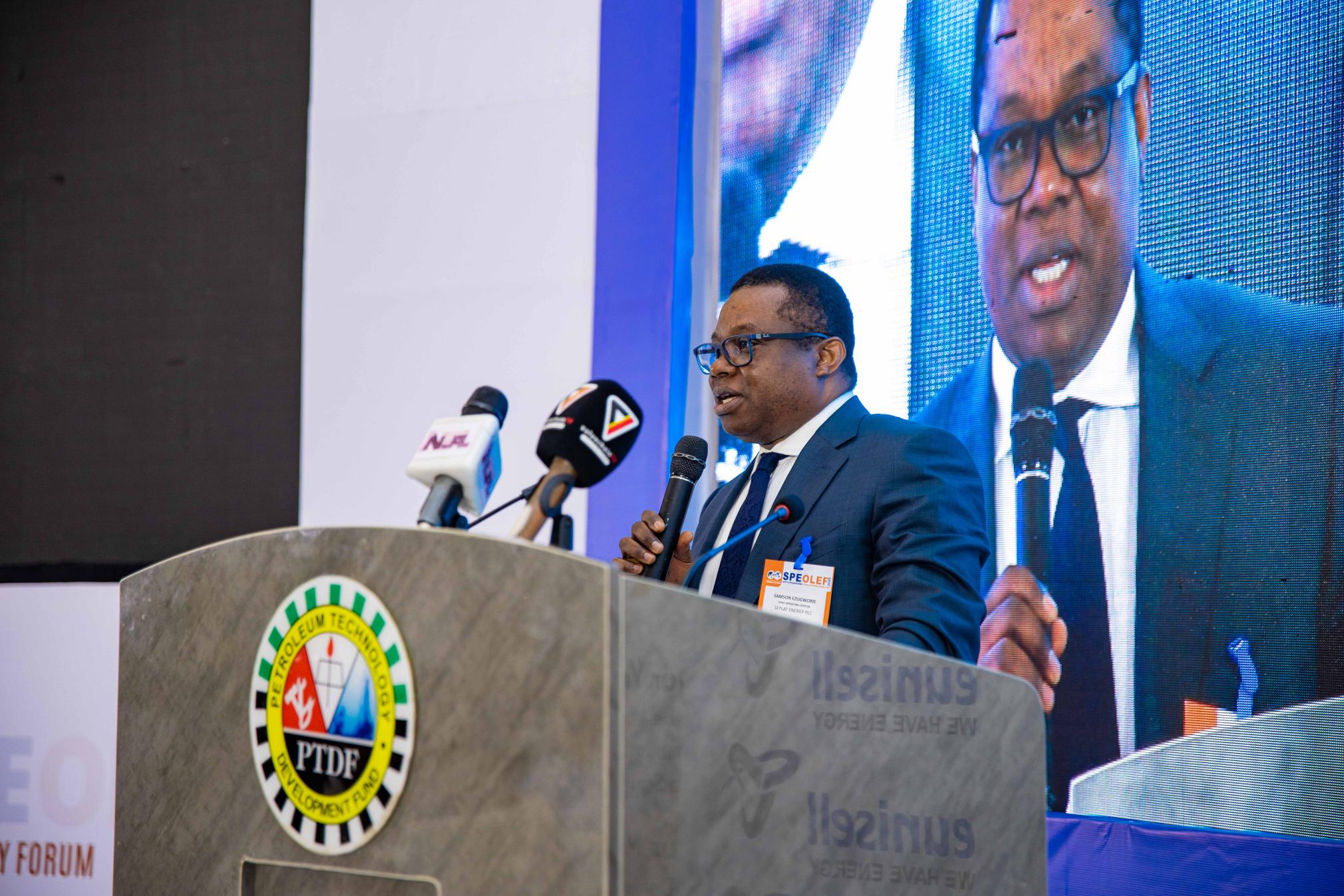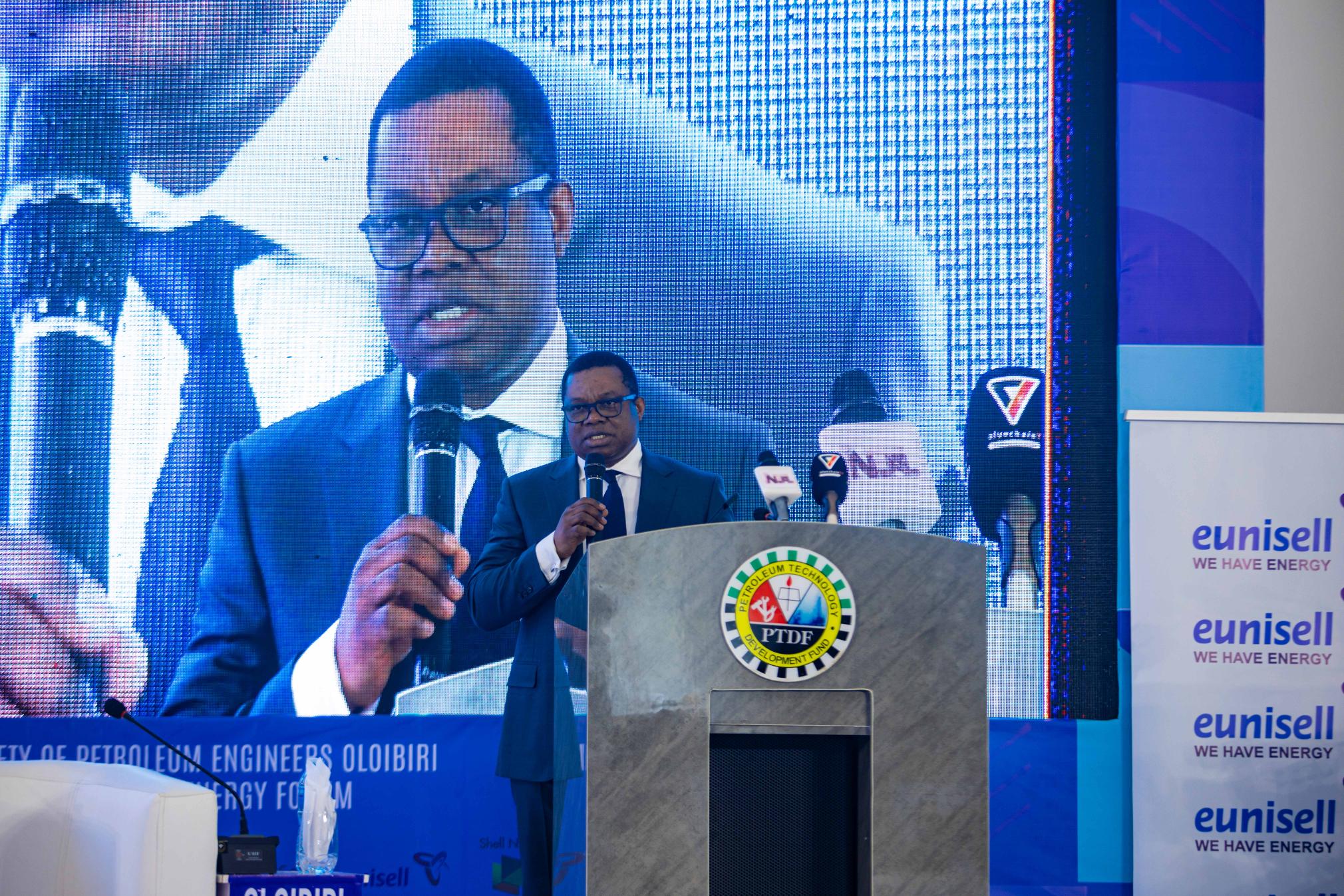Polaris Bank Pledges Continuous Partnership With NDLEA To Combat Drug Abuse, Trafficking, And Money Laundering




 The Federal Inland Revenue Service (FIRS) has commenced a comprehensive review of all tax incentives under its administration, citing the need to improve transparency, eliminate inefficiencies, and ensure value for money in the country’s tax expenditure system.
The Federal Inland Revenue Service (FIRS) has commenced a comprehensive review of all tax incentives under its administration, citing the need to improve transparency, eliminate inefficiencies, and ensure value for money in the country’s tax expenditure system.
This move was disclosed by the Executive Chairman of the FIRS, Dr. Zacch Adedeji, who was represented by the Coordinating Director of the Corporate Services Group, Mrs. Bolaji Akintola, at the Tax Expenditure Workshop held in Abuja on Tuesday.
Dr. Adedeji said the Service had already identified a number of infractions in the administration of tax incentives, as a result of ongoing monitoring and evaluation processes.
He noted that the Tax Expenditure Management unit within the Service has been mandated to assess the foundational elements of all incentives, with early findings revealing major issues that require urgent attention.
Some of the problems uncovered include overlapping and, in some cases, contradictory tax incentives; lack of coordination among key stakeholders; absence of a central framework for managing incentives; and weak legislative oversight due to the non-existence of a dedicated tax committee in the National Assembly.
Also cited were political interference in tax matters, concerns arising from the OECD’s Base Erosion and Profit Shifting (BEPS) Pillar II framework, and ambiguity around the rationale for granting certain exemptions.
According to Adedeji, “The Service strongly believes that data is life in tax expenditure reporting. That is why the Tax Expenditure Management unit will receive the necessary support from the Service to harness our integrated digital tax administration system, TaxPro-Max, and any other ICT tools needed to ensure accurate and efficient data collection.”
Looking ahead, the FIRS Chairman expressed the agency’s readiness to collaborate with regional and international organizations, including the Economic Community of West African States (ECOWAS), the International Monetary Fund (IMF), the World Bank, and the Addis Tax Initiative (ATI), in building a robust tax expenditure value chain that supports accountability and effectiveness.
He said while some abuses have already been observed, there are broader concerns around the continued relevance of many tax incentives currently in place. To address these issues, the FIRS is proposing several reforms, including amendments to the legal instruments that enable tax expenditures. These changes, Adedeji explained, are critical to addressing misuse, aligning the system with global tax reforms like the BEPS Pillar II minimum tax rule, and making the framework more adaptive to changing economic realities.
The FIRS also advocates the establishment of a centralized mechanism for regulating and monitoring tax incentives. Such an arrangement, it argued, would be able to conduct continuous cost-benefit analyses (CBAs) to determine whether each tax incentive remains justifiable. Duplications and overlaps among Ministries, Departments, and Agencies (MDAs) would be eliminated under this model.
The Executive Chairman stressed the urgent need for inter-agency cooperation to transform the tax expenditure ecosystem, especially as the responsibility for impact assessments and evaluations still lies largely with MDAs such as the Nigerian Investment Promotion Commission (NIPC), the Nigeria Export Processing Zones Authority (NEPZA), and the Oil and Gas Free Zones Authority (OGFZA).
Dr. Adedeji drew attention to the growing pressure on FIRS to boost tax revenue collection at a time when direct contributions from some MDAs to the Federation Account are declining.
Despite these challenges, he said, the FIRS has managed to sustain significant contributions through reforms and strategic initiatives. In 2024, the agency collected a total of N21.6 trillion in tax revenue and is targeting N25.2 trillion in the current fiscal year.
Earlier at the event, Mr. Ikata John, Head of the Tax Expenditure Management unit, emphasized that while tax incentives play an important role in encouraging investments, supporting industries, and achieving policy objectives, their fiscal impact must be carefully managed.
He noted that poorly designed or inadequately monitored incentives can significantly reduce government revenue, defeating their original purpose. “This workshop provides a critical platform for stakeholders to examine whether the tax expenditures are achieving their intended goals and if the associated costs are being accurately measured,” he said.
Mr. John added that the FIRS remains committed to promoting a tax system that is fair, efficient, transparent, and accountable.



Seplat Energy Plc, leading Nigerian independent energy Company has restated its commitments to energy sustainability as it impacts people, environment and corporate governance, stressing that its focus is long-term with dividends accruable beyond today.
The Chief Operating Officer, Seplat Energy, Mr. Samson Ezugworie, stated this at the Society of Petroleum Engineers (SPE) Nigeria Council 2025 Oloibiri Lecture Series and Energy Forum (OLEF) held in Abuja recently.
Ezugworie, who spoke in the Forum’s panel session titled ‘Driving Energy Sustainability Through Technology, Policy, and Supply Chain Excellence’ maintained that business sustainability is about vision and building a future “you may not benefit from”.
He likened sustainability to the human race and many challenges that have confronted it; amongst which is energy poverty in Nigeria, which he stressed had limited the potential of the country and its people.
Speaking on Seplat Energy’s effort at addressing energy poverty in Nigeria, Ezugworie noted that over 850MMscfd of gas installations have been achieved in-country (excluding capacities from the recently acquired MPNU assets).
“Over the years, we have currently installed over 850MMscfd of gas geared towards supplying gas to domestic users in Nigeria. With the recent acquisition of the MPNU assets, we will now begin to explore and exploit other growth options. We are going to go into the mass gas reserves of that asset and still ensure that we use significant part of that to power Nigeria,” the Seplat Energy COO said.
He said the panel’s theme which hovers around energy sustainability, technology, policy and supply chains is centred around human beings and building the right capacities to drive growth and developmental progress. “Early this month at Seplat Energy, 50 young graduates just resumed for employment and they are undergoing diverse trainings at the moment. For us, this is capacity development; making sure that we have the funnel of talents that will replace us in due course. This is sustainability,” Ezugworie affirmed.
Highlighting what Seplat Energy had done in the deployment of technology in Nigeria’s gas space, the Seplat Energy COO said the Company’s various interventions were quite transformational. Seplat has implemented its end of routine flaring (EORF) roadmap, which includes investments across our production facilities to minimise Scope 1 & 2 greenhouse gas emissions and improve overall energy efficiency.
For instance, the first module of Seplat’s Sapele Integrated Gas Plant (SIGP) has commenced operations and is now producing. Once the plant is operating at capacity, expected during 2025, it has the potential to materially reduce the Group Scope 1 emissions. Other ongoing key flare-out projects, including the Western Asset Flares Out (installation of vapour recovery unit compressors), Sapele LPG Storage & Offloading Facility, Oben LPG Project and Ohaji Flares Out Project. The Company is on track to end routine flaring of gas across its onshore assets in 2H 2025.
Ezugworie also highlighted Seplat Energy’s strong commitment in deliver Corporate Social Investment initiatives in health, education and access to energy sustainably in Nigeria. Last year, 352 teachers were impacted in the 2024 edition of Seplat Teachers Empowerment Programme (STEP); 6,373 students impacted during the 2024 Pearls Quiz; 4 Science Technology Engineering Arts & Mathematics (STEAM) Labs equipped in 4 secondary schools; 9,780 impacted in the 2024 Eye Can See Programme; and Energy solutions delivered in 6 schools and 3 hospitals completed.
 The President of the Manufacturers Association of Nigeria (MAN) Otunba Francis Meshioye alongside the Director-General, Segun Ajayi-Kadir, on a courtesy visit applauded British American Tobacco (BAT) for its significant contributions to the growth of Nigeria’s manufacturing sector, emphasizing the company’s commitment to sustainability and innovation in fostering a more resilient economy.
The President of the Manufacturers Association of Nigeria (MAN) Otunba Francis Meshioye alongside the Director-General, Segun Ajayi-Kadir, on a courtesy visit applauded British American Tobacco (BAT) for its significant contributions to the growth of Nigeria’s manufacturing sector, emphasizing the company’s commitment to sustainability and innovation in fostering a more resilient economy.
“At BAT, we are dedicated to building A Better Tomorrow by prioritising employee safety, minimising our environmental impact, and embracing sustainable practices. Our mission is to continue innovating and leading the industry while upholding responsible manufacturing standards,” he stated.
Ishtiaq highlighted BAT’s legacy since its founding in 1902, noting its presence in Nigeria since 1912 and the commissioning of the Ibadan facility in 2003.
“With ₦500 billion in tax remittances (2018–2024), we have created over 350,000 jobs and strengthened Nigeria’s economy,” he said.
He emphasised that the Ibadan factory, with 16 production lines, generates up to $110 million in foreign exchange annually.
“This visit and MAN’s endorsement reaffirms BAT’s role as a strategic manufacturing partner committed to innovation, safety, and sustainability,” he concluded.

The Manufacturers Association of Nigeria (MAN) has expressed its endorsement of the recently signed $174.59 million development pact between Nigeria and the United Nations Industrial Development Organization (UNIDO), which aims to boost industrial growth and sustainable development across the nation.
Specifically, the Association commends the $174.59m Programme for Country Partnership (PCP) agreement to boost Nigeria’s industrial development.
Otunba Francis Meshionye, pledged MAN’s unwavering support in collaborating with stakeholders to ensure the successful implementation of these initiatives. By focusing on job creation, the program aims to empower the workforce and reduce unemployment rates, thereby bolstering the economy. Furthermore, enhancing raw material availability is vital for manufacturers, as it will decrease production costs and improve competitiveness. The potential for increased exports will not only contribute to the nation’s foreign exchange reserves but also position Nigeria as a key player in the global market. Finally, attracting investments will provide the necessary capital for growth and innovation, ultimately driving the manufacturing sector forward. Under Meshionye’s leadership, MAN is committed to working hand-in-hand with the government and other relevant bodies to turn these aspirations into reality, paving the way for a more sustainable and prosperous manufacturing landscape in Nigeria.
The agreement, which will run for four years from 2024 to 2028, seeks to enhance the country’s industrial capacity, drive technological innovation, and promote sustainable industrial practices.
The recent partnership signed by Senator Abubakar Atiku Bagudu, the Minister of Budget and Economic Planning, marks a significant milestone in the Nigerian government’s ongoing efforts to foster industrial growth, create job opportunities, and stimulate economic transformation.
In a statement, Bagudu emphasized the initiative’s potential to enhance Nigeria’s industrial capacity, drive technological innovation, and promote environmentally sustainable practices within the industrial sector. This strategic collaboration is poised to catalyze investments and streamline processes that will ultimately lead to a more robust economy, better equipped to meet the challenges of the 21st century.
“The Federal Government of Nigeria and the United Nations Industrial Development Organisation have signed a Programme for Country Partnership agreement amounting to $174,585,000 for industrial development of the country.” he said.
Bagudu noted that the programme would provide economic opportunities, particularly for young people and marginalised groups.
The Minister disclosed that the funding strategy for the PCP involves 85.7 per cent, or $149.62m, from donor partners mobilised by UNIDO, while the Federal Government will provide 14.3 per cent, or $24.97m, as counterpart funding.
He noted that Nigeria had already made a financial commitment of $1.28m as payment to UNIDO.
Bagudu called on stakeholders, including development partners, the private sector, and civil society, to collaborate for the seamless implementation of the programme. He also commended UNIDO for its continued partnership and support for Nigeria’s industrial agenda.
In a recent address, the Minister of State for Industry, Senator John Owan Umoh, articulated a vision for an invigorated partnership with the United Nations Industrial Development Organization (UNIDO) as a cornerstone of the nation’s industrial strategy. Speaking at the launch event for the country’s latest industrial initiative, Senator Umoh emphasized that UNIDO’s involvement is pivotal in both technical advisory and strategic capacity. Given UNIDO’s global expertise and track record in fostering sustainable industrial development, the agency is uniquely positioned to support the government in actualizing its Industrial Revolution Work Group objectives. He highlighted the critical value of harnessing UNIDO’s resources and insights to facilitate innovative solutions that can drive competitiveness and economic growth. By integrating UNIDO’s frameworks and methodologies, the program aspires to not only bolster industrial capacity but also to position the nation as a regional leader in sustainable industrialization efforts.
He urged stakeholders to move from potential to productivity and from policy to prosperity as the PCP is implemented.
The Director-General of UNIDO, Mr Gerd Muller, said the PCP aligns with UNIDO’s mandate to promote industrial development among member states, with a focus on Sustainable Development Goal 9.
He noted that Nigeria has the potential to become an economic powerhouse in Africa.
The Permanent Secretary, Ministry of Budget and Economic Planning, Dr Emeka Vitalis Obi, said the series of engagements between the Ministry of Budget and Economic Planning, the Ministry of Industry, Trade and Investment, and UNIDO have reinforced the government’s commitment to ensuring the successful implementation of the PCP.
 The Manufacturers Association of Nigeria (MAN), said that the production and distribution costs in the manufacturing sector surged by 18.2 per cent in the fourth quarter of last year. Showing the macroeconomic environment’s as a worsening impact on manufacturers.
The Manufacturers Association of Nigeria (MAN), said that the production and distribution costs in the manufacturing sector surged by 18.2 per cent in the fourth quarter of last year. Showing the macroeconomic environment’s as a worsening impact on manufacturers.
Director-General of the Manufacturers Association of Nigeria, Segun Ajayi-Kadir, disclosed this in the Q4 2024 Manufacturers CEO Confidence Index report, made available to news men showing how the industry’s struggles with high costs, policy inconsistencies, and economic instability.
Following the report he states, “The findings show that production and distribution costs surged further by 18.2 per cent in the quarter under review, from the 20.1 per cent increase witnessed in the preceding quarter.”
While the report indicated a slight improvement in sales volume by 1.1 per cent, other key indicators such as capacity utilisation, manufacturing investment, and employment recorded further contractions.
Ajayi-Kadir revealed in the report that capacity utilisation declined by 0.8 per cent in Q4 2024 while manufacturing investment dropped by 1.2 per cent.
Employment in the sector also fell by 0.7 per cent, although the contraction was lower than the 3.5 per cent recorded in Q3 2024.
Ajayi-Kadir also noted that the cost of shipment rose by 11.6 per cent in Q4 2024 from the 17 per cent increase recorded in Q3 2024.
“A close observation of the analysis indicates that only the sales volume recorded a favourable change during the period of review,” MAN’s DG stated. “However, the analysis generally reveals that the adverse effects of the prevailing macroeconomic reforms are diminishing as production and distribution costs, capacity utilisation, volume of production, investment, employment, and cost of shipment recorded lower adverse changes compared to the previous quarter.”
Manufacturers identified high energy costs, forex scarcity, multiple taxation, and poor infrastructure as the biggest threats to their survival.
According to the report, high electricity tariffs and the cost of alternative energy remained a major burden on production.
The manufacturing chief executive officers also flagged the high exchange rate, interest rate hikes, and inconsistent government policies as factors crippling their businesses.
“Manufacturing operations were directly stalled by the lingering effects of high raw material costs, energy, and logistics, as the existence of high exchange rates, interest rates, and inflation rates remain unfavourable to the overall business environment,” the report noted.
Despite the tough conditions, the MCCI inched up by 0.5 points to 50.7 points in Q4 from 50.2 points in Q3, reflecting marginal optimism among industry players.
However, projections for the first quarter of 2025 show a downward trend.
The expected business condition dropped from 56 points to 53.2 points, while the projected employment condition slid to 53 points.
The anticipated production level also fell from 54.3 to 54 points, indicating manufacturers’ fears of further economic downturns.
The report suggested that hopes for stability in exchange rates, a halt in interest rate hikes, lower energy costs, and tax reforms were keeping optimism afloat.
Manufacturers urged the Federal Government to take immediate steps to ease the financial and operational burden on the sector.
Key recommendations include suspending further electricity tariff hikes and reviewing previous increases, pausing interest rate hikes, directing banks to offer manufacturers single-digit loans, and expanding the Bank of Industry’s capital base to improve access to industrial credit.
Ajayi-Kadir also called for the clearing of the outstanding $2.4bn forex forward contract to restore confidence in the currency market, halting the 15 per cent increase in port charges and facilitating the implementation of the National Single Window project to reduce trade costs.
He also recommended fast-tracking tax reforms and establishing a more transparent exchange rate mechanism for customs duties.
MAN’s DG emphasised that addressing these challenges would stabilise the manufacturing sector, boost production, and drive economic growth.
“Nigerian manufacturing is on its last breath. The future of the country will continue to hang in the balance unless the plight of manufacturers is adequately addressed with appropriate interventions,” he warned.
MAN’s MCCI is an index to measure changes in the quarterly pulse of manufacturing activities concerning movement in the macroeconomy and government policies. It has a baseline of 50 points, suggesting a stationary point in the economy.
When the MCCI rises above 50 points, it shows manufacturers have increasing confidence in the economy, and when it drops below 50, it signifies otherwise.